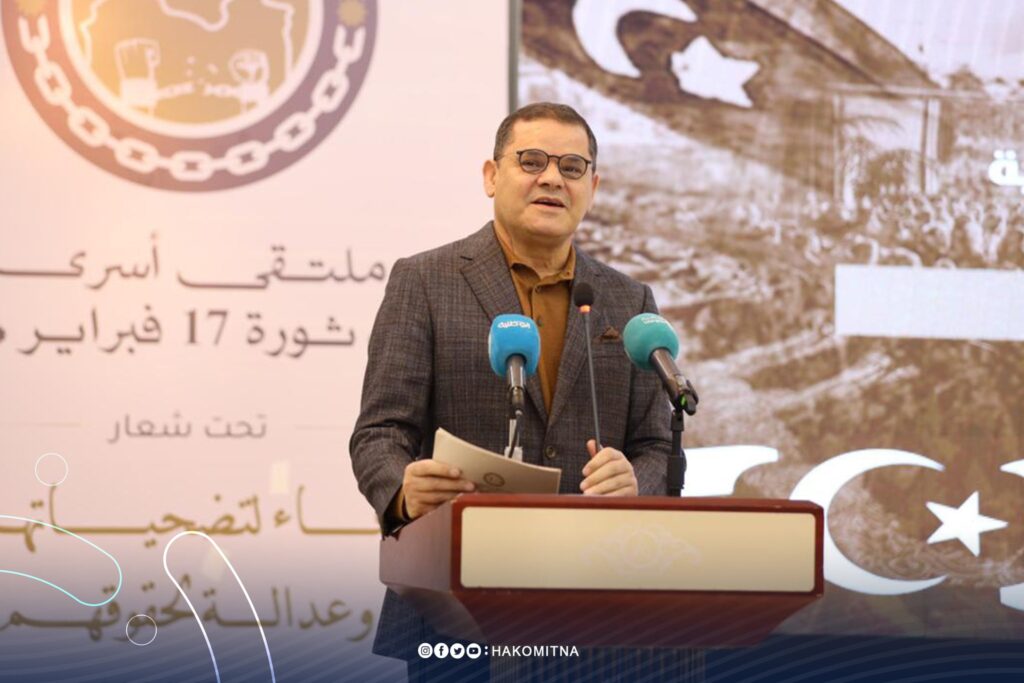Misurata_ The head of the Government of National Unity (GNU) Abdulhamid Dbeibeh slammed all major political forces in Libya and said there would be no elections unless there is a constitution, knowing that adopting a constitution now will not be easy nor it will meet the seeming urgency of the matter at hand.
“We can hold elections and we proved that in the municipal elections a few days ago. However, there are certain parties that want temporary measures so they can continue in the scene, we want clear constitutional rules in order to hold elections,” Dbeibeh said at a gathering in Misurata on 14 December 2024.
Mr. Dbeibeh is under considerable political pressure to come along and accept the many initiatives that call for holding the general national presidential and parliamentarian elections as soon as possible. The elections are first necessary step to form a unified government for Libya.
Ms. Stephanie Koury, UNSMIL’s Deputy Special Representative of the Secretary-General (DSRSG), is leading the efforts in this direction and she intensifies contacts and discussions in order to bring political factions to agree on an election mechanism to hold the elections as soon as possible.
The House of Representatives, Dbeibeh’s main rival, says it is cooperating with the UNSMIL and the international community and it is, too, would like to get the elections carried out soon, accusing the GNU of hindering the process. The HoR reiterates its commitment to the political agreement and the recommendations of the 6+6 Committee regarding the matter.
At the gathering in Misurata, however, Dbeibeh said there are four bodies that hinder the progress of the political process: “the military system, the Brotherhood, the monarchy movement and the House of Representatives.” He believes that the military “wants to impose their system against which the [people] revolted… they cannot return to us now again to rule us with the gun,” he added as quoted by Alwasat newspaper on Saturday.
Dbeibeh rejected the recent initiative of the commander of the Libyan National Army, Khalifa Haftar, regarding national reconciliation without naming him by saying: “There are those who talk about reconciliation. First, they must apologize to the Libyans for the invasion and killing… This is naivety and disdain for the minds of the Libyans,” according to Alwasat newspaper.
Mr. Haftar along with the HoR represent a major political force and the main rivals to Dbeibeh controlling both eastern and southern Libya where most oil fields and oil sea terminals in the counry are located.
“Libyans should help themselves and not wait for help from the world community. Even the UN will assist according to its own way and not according to Libyan people’s way,” he said; asking, “who hid the Constitution in the drawers?”
Dbeibeh accused the parliament of planning to change the GNU in order for its members to stay in offices for another 13 years. “The conspiracies are great and the people are the ones who remain,” he said.
Regarding the royalist movement, Dabaiba turned populist at the gathering and said: “We respect the king, but the past will not return again, let us think about our children and grandchildren, so the system of the masses, royal or religious system will not succeed, the only system that suits us is democracy.”
Nevertheless, at the outlook, Dbeibeh and the GNU seem to work hand in hand with the Presidential Council in Tripoli, but the call on Saturday by the Council’s Chairman, Mohammed Menfi, for holding national elections in 2025 and in accordance with the recommendation and rules advanced by the 6+6 Electoral Laws Committee may signal a division in Dbeibah’s camp.
In this approach, Mr. Menfi does not differ from that of the House of Representatives and both, if pressured by UNSMIL and the major powers along with strict elections’ timetable, could indeed lead the country to presidential and parliamentary elections soon. But for Dbeibeh and his supporters the stakes are high and they will not give up to pressure easily, whether it comes from inside Libya or from the international community.
